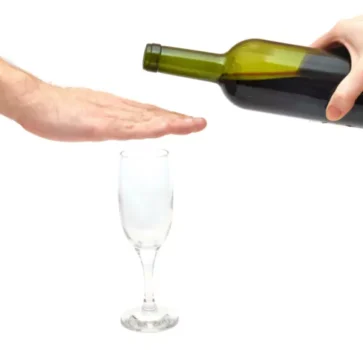
The symptoms can go on for an extended period time, usually months, without relief. In this case, the person may have Generalized Anxiety Disorder (GAD). Anxiety sensitivity was also found to predict higher alcohol use — heavy but not the kind of problematic drinking that significantly interfered with school or work.
Illegal Drugs
Alcohol-induced panic attacks are typically triggered by the body’s heightened anxiety response during withdrawal. Individuals with pre-existing anxiety disorders may be more prone to panic attacks. Alcohol carries many serious risks for people with anxiety, especially if they drink to help cope with their condition. These side effects can lead to serious and sometimes fatal consequences, including accidental injuries.
Social Anxiety Disorder and Agoraphobia
There is also an increased overdose risk from combining antihistamines and alcohol. Medications such as gabapentin and pregabalin (Neurontin and Lyrica, respectively) are also prescribed to treat some forms of anxiety. Research shows they are beginning to hold promise as an effective anxiety treatment. Alcohol is a natural disinhibitor — meaning it can cause you to make choices you may not make while sober.

Online therapy options
Telemedicine offers a convenient way to consult healthcare providers from home, especially for those hesitant to visit a clinic due to anxiety. Early intervention can prevent the condition from worsening and help you regain control of your mental health. Naltrexone is typically prescribed for patients trying to reduce or stop alcohol consumption. It is usually taken once daily and can be combined with other medications for anxiety.

Lifestyle changes to reduce anxiety

It works by increasing serotonin levels, which improves mood and reduces anxiety. It is worth noting what is alcoholism that both alcohol and anti-anxiety medication are often used as a means of coping with anxiety. While they may provide temporary relief, they do not address the underlying causes of anxiety.
According to a 2019 paper, panic disorder has a strong association with AUD. People with AUD may have a higher risk of developing panic disorder, which can cause unexpected, recurring panic attacks. AUD is a chronic condition that includes a variety of effects on the mind and body. Treatment effectiveness may also be difficult to document due to relapses and treatment challenges. According to a 2017 review of 63 studies, reducing alcohol intake led to improvements in both depression and anxiety.
Check your rehab insurance. There’s no commitment. It’s 100% private. Most rehab insurance accepted, including:
- Paroxetine is another SSRI used to treat anxiety disorders, including alcohol-induced anxiety.
- If anxiety persists despite these lifestyle changes, seeking medical help is essential.
- This symptom arises from alcohol’s disruption of neurotransmitter balance, particularly gamma-aminobutyric acid (GABA) and glutamate.
- A study on animals released in 2018 suggested that ethanol, the main ingredient in an alcoholic drink, might increase the maximum concentration of Xanax in the bloodstream.
Avoidance behavior is reported in 30-50% of individuals with alcohol-induced anxiety disorder. This involves avoiding situations or environments that may trigger anxiety, such as social gatherings or places where alcohol is present. Avoidance behavior can significantly impact a person’s quality of life, leading to social isolation and worsening anxiety. It is more common in individuals who have developed a dependence on alcohol to cope with anxiety. Trembling, or tremors, occur in 30-50% of individuals with alcohol-induced anxiety disorder. Tremors are involuntary muscle movements, often affecting the hands but can also occur in other parts of the body.
Our facilities offer various levels of care that can help you or a loved one start the path to recovery. No matter how things might seem right now, there is always hope, and we are here to help you every step of the way. However, it is important to use this medication under strict medical supervision. Your partner, parents, children, friends, employer, coworkers, doctor, or therapist might confront you about your drinking habits or your behavior when you drink. The symptoms of a hangover, such as nausea and vomiting, dizziness, dehydration, and low blood sugar, can make it hard to function.
Table of Common Medications Used for Anxiety Disorders
It is important to understand the risks of combining alcohol with anxiety medications, as certain combinations can be harmful and even deadly. For example, mixing benzodiazepines with alcohol can lead to respiratory depression and lethal overdoses. When taking medication for anxiety, it is generally recommended to avoid or limit alcohol consumption.
- Telemedicine offers a convenient way to consult healthcare providers from home, especially for those hesitant to visit a clinic due to anxiety.
- The side effects can even be life-threatening, especially in older adults, as it can increase the risk of falls.
- For example, duloxetine (Cymbalta, Irenka, Drizalma Sprinkle), which is used to treat anxiety in people aged seven years and older, can cause liver damage.
- Many anxiety drugs have central nervous system depressant activity and interact with alcohol, so it is important to understand your risks.
- Increased heart rate, or tachycardia, affects 40-60% of individuals with alcohol-induced anxiety disorder, particularly during withdrawal.
Chronic alcohol consumption is linked to liver damage, cardiovascular issues, and disruptions in sleep patterns, alcohol and anxiety all of which can exacerbate feelings of stress and unease. Alcohol’s interaction with anxiety disorders is particularly complex. While it may seem to alleviate symptoms temporarily, it actually intensifies them in the long term. This relationship is especially dangerous for individuals with generalized anxiety disorder (GAD), social anxiety disorder (SAD), or panic disorder. If you have social anxiety or a social phobia, therapy may work best to reduce your levels of anxiety (combined with a medication such as sertraline, or Zoloft). People prescribed antidepressants are urged to avoid drinking or limit alcohol intake when taking the drug.
 Cart is empty
Cart is empty
Leave A Comment